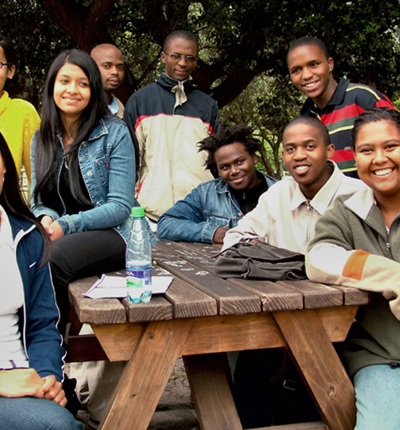
Social justice and community work
At Leigh Day we believe that everything that the firm does is about achieving social justice. At the core of the firm is a shared belief in a fair society where everyone has access to justice. That belief incorporates our relationships with our staff, clients, service providers, the local community where our offices are based and our impact in and on the wider community.
As part of this commitment the firm has strong links with many community organisations. We do not operate in a legal vacuum but are committed to using the law to try and achieve social justice for all members of the community, in Britain and abroad.
Free work
Leigh Day does not have a pro bono policy. Every day, lawyers in the firm do work for which they are not paid for existing and past clients and other people who have concerns about their legal rights or need advice. This is not a conscience-salving measure but part of the ethos of the firm. The firm also supports numerous charities and NGOs with fund-raising.
Outside work, many individual lawyers volunteer regularly at law centres such as the Lewisham Law Centre where lawyers give weekly legal advice to Lewisham residents who have been involved in an accident or have been injured at work. Other partners and lawyers give free advice at the Islington Legal Advice Centre every week. We also offer free confidential advice to members or people who consult a number of NGO’s. Indeed, we have links with many charities and non-Governmental organisations (NGOs) and have worked with and represented these bodies to challenge the behaviour of governments and public authorities. We also work with a wide range of local and single issue groups.
Walkers from Leigh Day regularly raise money on the London Legal Sponsored Walk in May each year for the Islington Legal Advice Centre.
Charities we support
Leigh Day has strong links with Africa. Some of our most interesting, challenging and rewarding cases have been actions against multinational corporations or the British government on behalf of people from east, south and west Africa.
As part of our strong links with the continent, we have made education in Africa one of our charitable priorities which has proved to be both rewarding and highly effective as the amount of money donated in Africa goes much further than in the UK. All the partners feel passionately that education is the key to achieving social justice.
The first project that the firm established, in 2000, was to set up scholarships in conjunction with the Canon Collins Trust and the University of the Western Cape. The scholarships are to enable a number of disadvantaged students to study law in South Africa each year and cover their university fees for the duration of their studies. The scholarships have been a huge success. Many of the students are the first in their families to go to university and all of them have achieved well; one visually impaired student passed all of his exams with a distinction aggregate. A number of our students have featured on the Dean's Merit List.
The Canon Collins Trust merged with the Educational & Legal Assistance Trust in South Africa in August 2012.
In 2006 the firm decided to extend its charitable work to other parts of Africa and started to work with Peter Kilesi, a Kenyan community worker, to identify a suitable project.
Dol Dol is a remote town in Kenya’s windswept highlands, about 200 km north of Nairobi. Leigh Day got to know the area through its work representing Masai pastoralists who were injured by munitions left lying on grazing lands by the British army while carrying out training exercises nearby.
Leigh Day now supports some 50 orphans with the costs of their primary education. The primary school in the Laikipia District has over 600 pupils, with boarding places for 120. While primary education is free to all in Kenya the associated costs such as for uniforms, books, food and stationery still have to be met by families. The position of the many children orphaned by HIV/AIDS in the area is even more precarious as, although they often have extended families to act as guardians, they are usually last in line for any spending on education. In the Masai community these children often end up herding grazing livestock. We work with the Africa Educational Trust to help with the primary education of HIV/AIDS orphans and also contribute to the costs of the secondary education of a number of children. We also support a number of children through secondary school.
In the summer of 2010 we also started a sponsorship programme designed to send two people each year to Kenya to assist on projects at Dol Dol school for a month at a time. The projects include teaching English through games and spoken activities, running debating and other clubs, as well as sporting activities for the children. As well as the partnership contributing to these projects, fund-raising also goes on in firm, the latest example being a project to stock a community library at the school.

